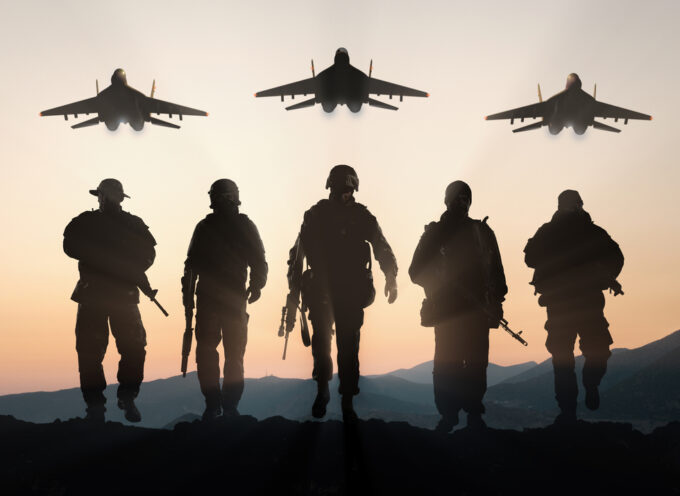The United States’ war footprint is growing in the Middle East, a shift that began during the Obama administration and is continuing under President Trump. As Ben Hubbard and Michael R. Gordon noted yesterday, the United States has increased its local forces in Syria, supported an urban offensive in Mosul, and is increasing the number of American troops in Yemen where it has launched at least 50 strikes already this month.
What has changed with the Trump administration is new procedures that make it easier for the on-scene commander to order an airstrike rather than having to wait for permission from a senior officer who is off-scene.
Many military commanders welcome this development, as it enables them to do what they are charged with doing: winning the conflicts in which they are already engaged. Other military commanders warn that the increase in military operations must be accompanied by an increase in the diplomatic and political plans that accompany the operations. Without a good diplomatic and political plan, military victories can unravel quickly, leaving the scene worse than it was before the conflict.
I am not able to adjudicate well the complex and multi-faceted conflicts in Syria, Iraq, Yemen, and other countries, so I will not comment on them. Instead, I want to remind us of the criteria for engaging in a justified war, and warn us against future temptations to lapse into the “interventionist” or “crusader” mentality that has often been exhibited by persons on the Left and the Right.
The Characteristics of Justified Warfare
Before any nation goes to war, certain criteria must be met. A just war must be waged, for example, with just cause (defending against an unjust aggression), with right intention (to restore the tranquility disrupted by the unjust aggression), as a last resort (having exhausted all realistic nonviolent options), and in the right spirit (with regret rather than with glee, hatred, or a lust for power or glory).
Just war proponents also outline certain principles that must be followed while fighting a war. Among those principles are proportionality (no more force than necessary), discrimination (distinguishing between combatants and non-combatants), avoidance of evil means (such as rape and pillage), good faith (treating POWs with civility), probability of success (fighting only until there is not a hope of victory), and right spirit.
Ten Characteristics of Unjustified (“Crusader” or “Interventionist”) Warfare
Sometimes a nation might think it is waging a justified war, but in reality the war in which it is engaged is really a crusade. I fear that many persons—on the Left and the Right—who advocate for “just war” have unwittingly actually lapsed into a crusader mentality. For that reason, I am providing a list of ten contrasting characteristics that help us distinguish between just wars and crusades. These characteristics come from a public paper delivered by Daniel Heimbach (Senior Professor of Christian Ethics, Southeastern Baptist Theological Seminary), a former White House staffer and adviser to President George H. W. Bush.
- Crusade treats war as an unconditional effort of good against evil, whereas just war treats war as a morally restrained effort to restore a just peace.
- Crusade treats war as a matter of religion and is led by some religious authority (or ideological authority that functions in the place of religion). In just war, war is treated as a responsibility of civil government and is fought under the conscience of the one who heads the civil order.
- Because crusade is fought for the sake of that which defines good and evil (God, the ideal), there is for crusade little place for moral restraint in war. Anything that serves God (or the ideal) is right by definition, so wars of crusade are “total” wars. By contrast, just war places moral limits on what can be done in war—force must be limited only to what is necessary and used only on military targets.
- Because there can be no compromise between good and evil and because war is “total,” crusade has little place for surrender. Enemies, because they personify evil, deserve no mercy; those who give up need not be spared. By contrast just war spares those who surrender and protects the rights of those taken as prisoners of war.
- In crusade, the objective of war is to impose an ideal, whereas just war seeks a limited good–the restoration of recognized borders or a balance between conflicting rights.
- Crusade seeks to conquer or punish, whereas just war seeks only to rectify the injustice that warranted entering into conflict.
- Crusade opposes the whole social order and value system of an enemy, so there is no distinction between combatants and noncombatants. In just war it is important to distinguish between combatants and noncombatants.
- In crusade, soldiers go to war with zeal; war is a vocation for saints, and soldiers fight a war of religious vision (or ideology) as well as a war of flesh and blood. In just war soldiers regard the use of force as a tragic necessity and a last resort, and are not agents for religious or ideological transformation as such.
- Crusade requires no declaration of war, whereas just war must be declared by those responsible for the civil order.
- In crusade, the state of war tends to become permanent (because the ideal can never be perfectly realized), whereas in just war hostilities cease when the specific infraction of justice that led to war has been rectified.
Warfare and Citizenship
In a democratic republic such as the United States, it is the duty of Christian citizens to be vigilant in regards to warfare. Based upon historic Christian principles for just war, we should evaluate our nation’s potential and actual military conflicts, with an eye toward expressing our opinion to our elected representatives.
We should do so with humility, knowing that we do not ever possess a full knowledge of all of the factors at stake (considering that the military and intelligence communities do not, and usually should not, make all information public). We should do so with confidence, however, knowing that it is our responsibility as citizens to do so, and that our voice is valuable in the government’s decision-making process.
Subscribe
Never miss a post! Have all new posts delivered straight to your inbox.







